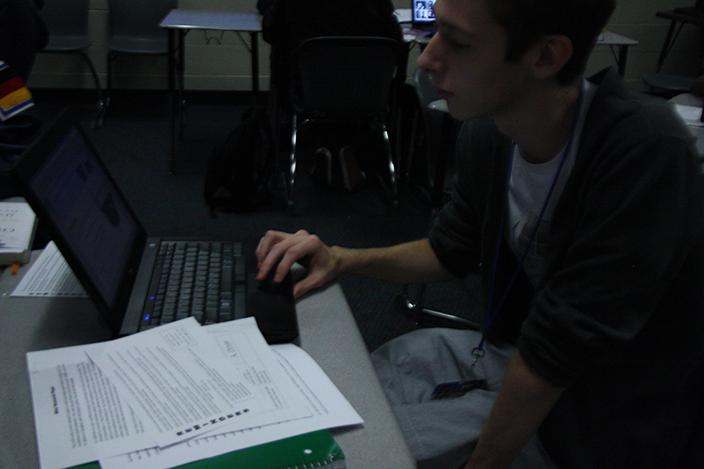Ten test prep tips
Photo by: rebekah
Photo by: Rayya Gordon
Study hard, do work.
Whenever a teacher gives an assignment, do it. Ask for help if needed. Study before going to sleep. Studies show the brain remembers what we review right before sleep. Break up information into small parts and review repeatedly for a decent amount of time.
Get a good night’s sleep.
Staying up all night definitely won’t allow concentration on anything, resulting in a bad test grade. University of California, Los Angeles (UCLA), researchers found students who did not get enough sleep were more likely to score lower grades on tests and homework. According to the Sleep Foundation website,, teens need more than nine hours of sleep each night to function best. However, one study found that only 15 percent of teens reported sleeping 8 1/2 hours on school nights.
Wake up with a positive attitude.
Starting the day off on the right foot puts everyone in the right mindset and gives them the edge to do better on tests. Waking up earlier to get some fresh air, not rushing to get ready for school, and listening to music are great ways to help start the day.
Eat breakfast.
As the saying goes, “breakfast is the most important meal of the day.” Not going to school with an empty stomach is important, especially on testing days. Eating breakfast before a test allows focus without worrying about embarrassing stomach growling, which can break concentration. According to pediatrician Dr. William Sears, children who eat breakfast are better able to handle complex problems in class and get better grades.Students who eat breakfast averaged 17.5% higher on their math scores.
Get to school on time.
Getting to school late decreases time for test-taking. It also causes unneeded stress during a testing day.
Don’t panic.
Some students have test anxiety, causing them to do poorly. Take deep breaths to calm yourself down. Try meditating for a few minutes to relieve stress before the test. Napping, laughing, and even chewing gum can reduce stress levels.
Stretch frequently.
Wake up by taking a break once and a while to stretch.
Read carefully.
Don’t get a question wrong due to lack of attention. Block out background noises and surrounding.
Take breaks.
Go to the bathroom and get water often, or when needed.
Be confident.
Don’t walk away thinking “I just bombed that test.”





